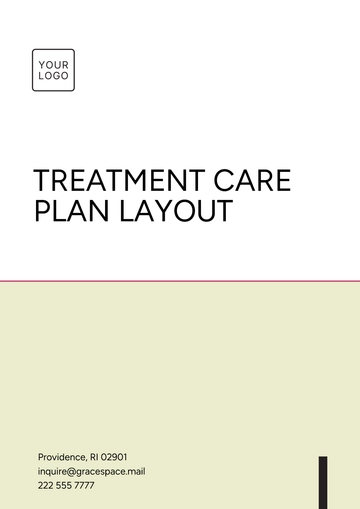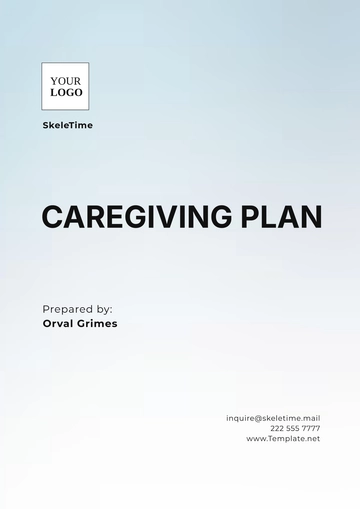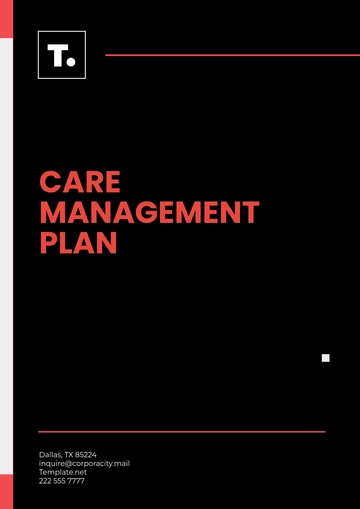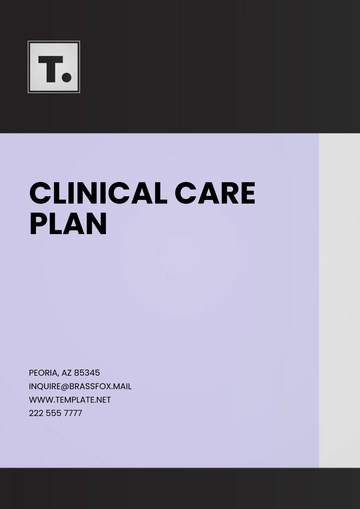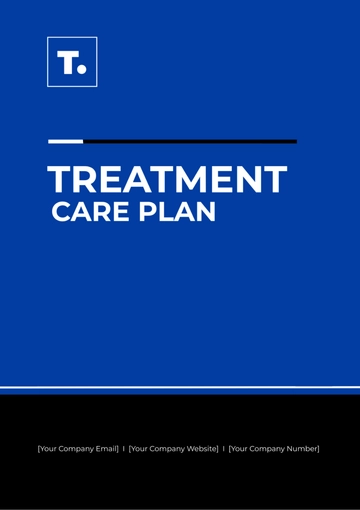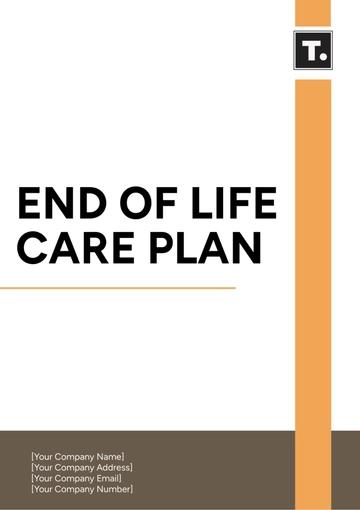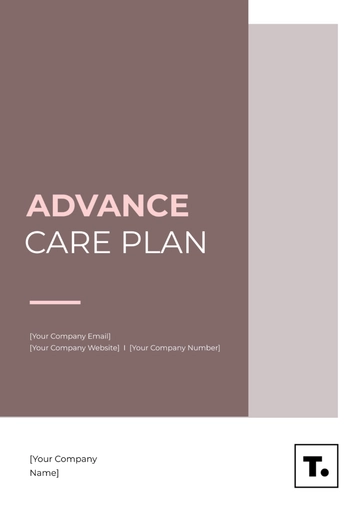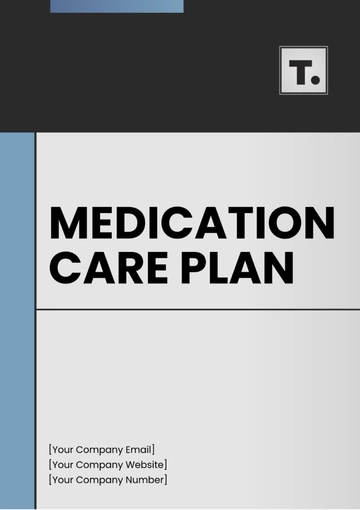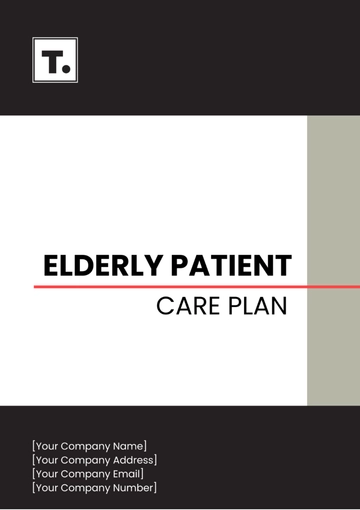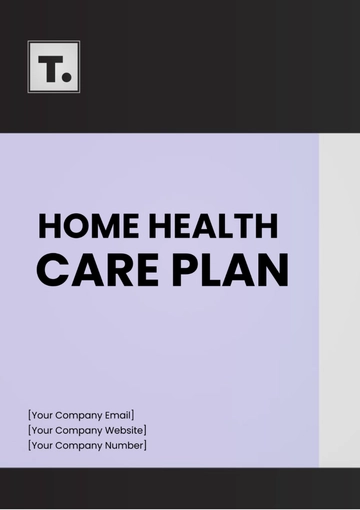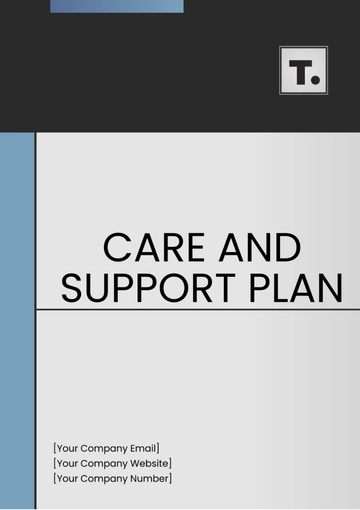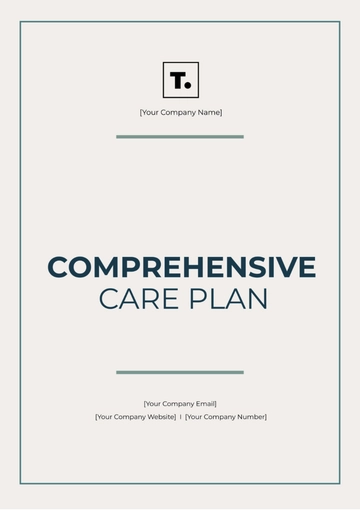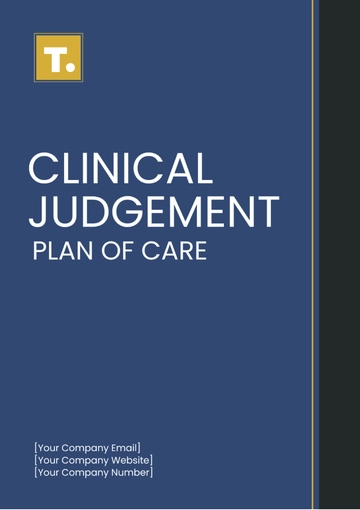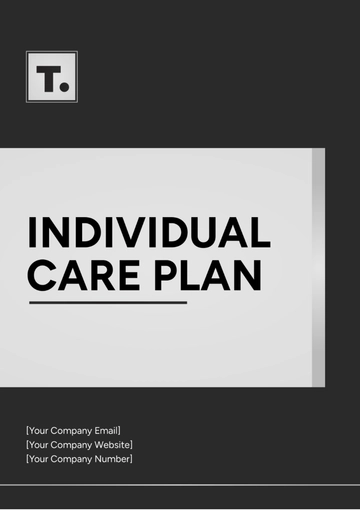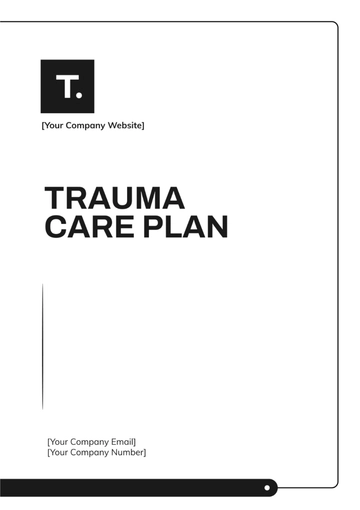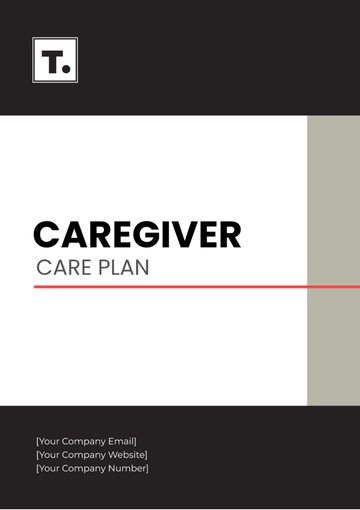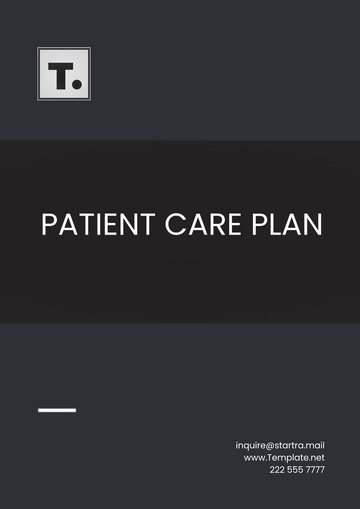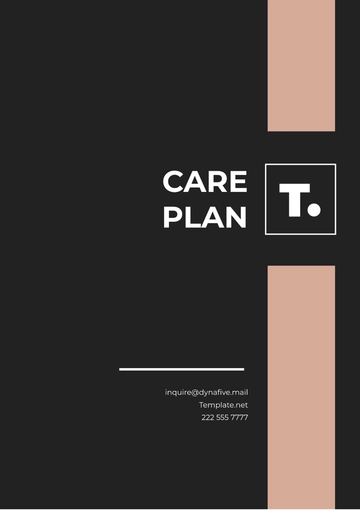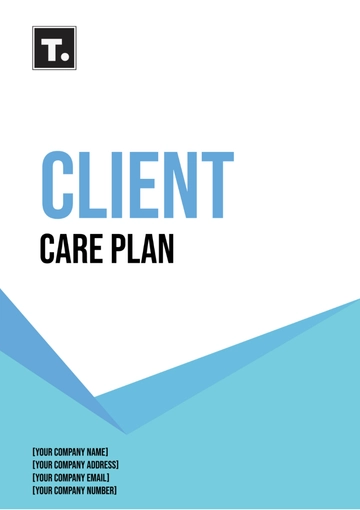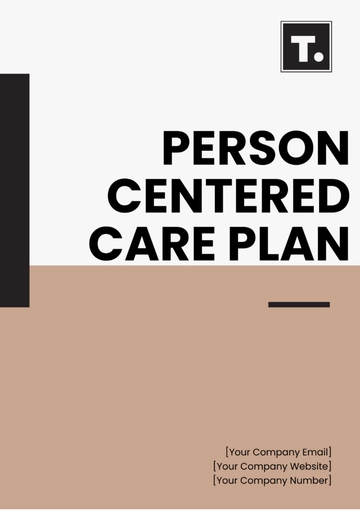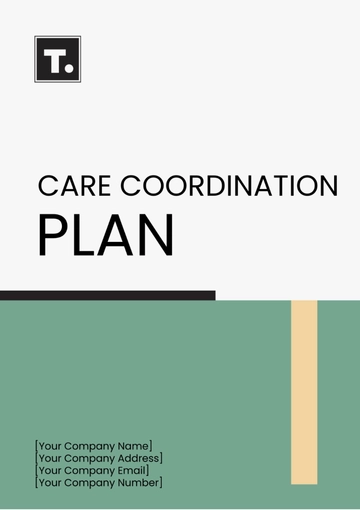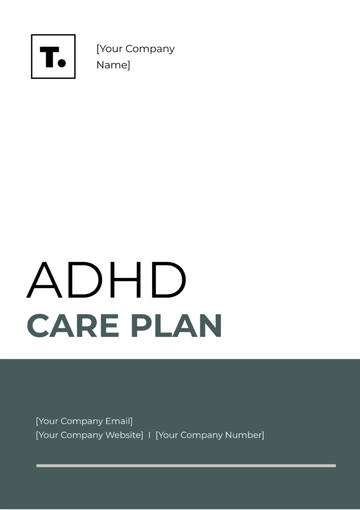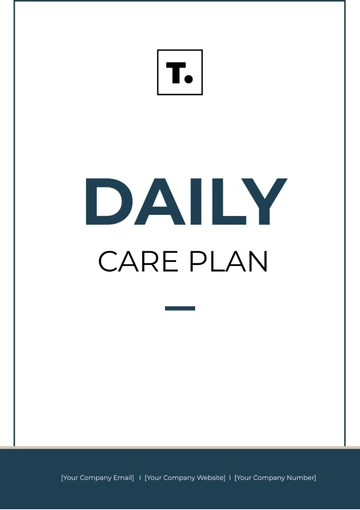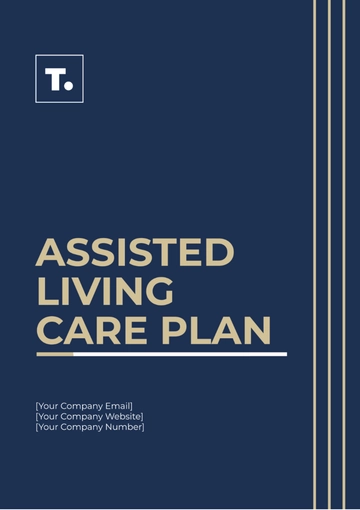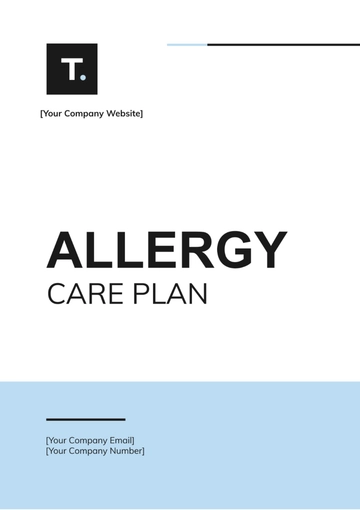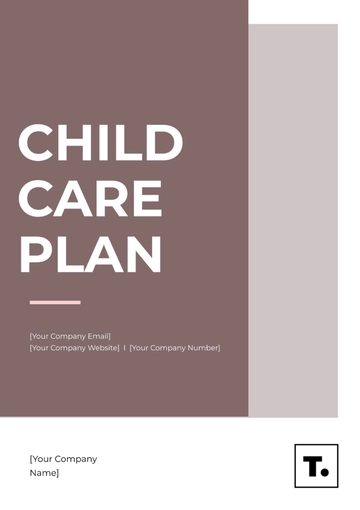Free Social Work Care Plan
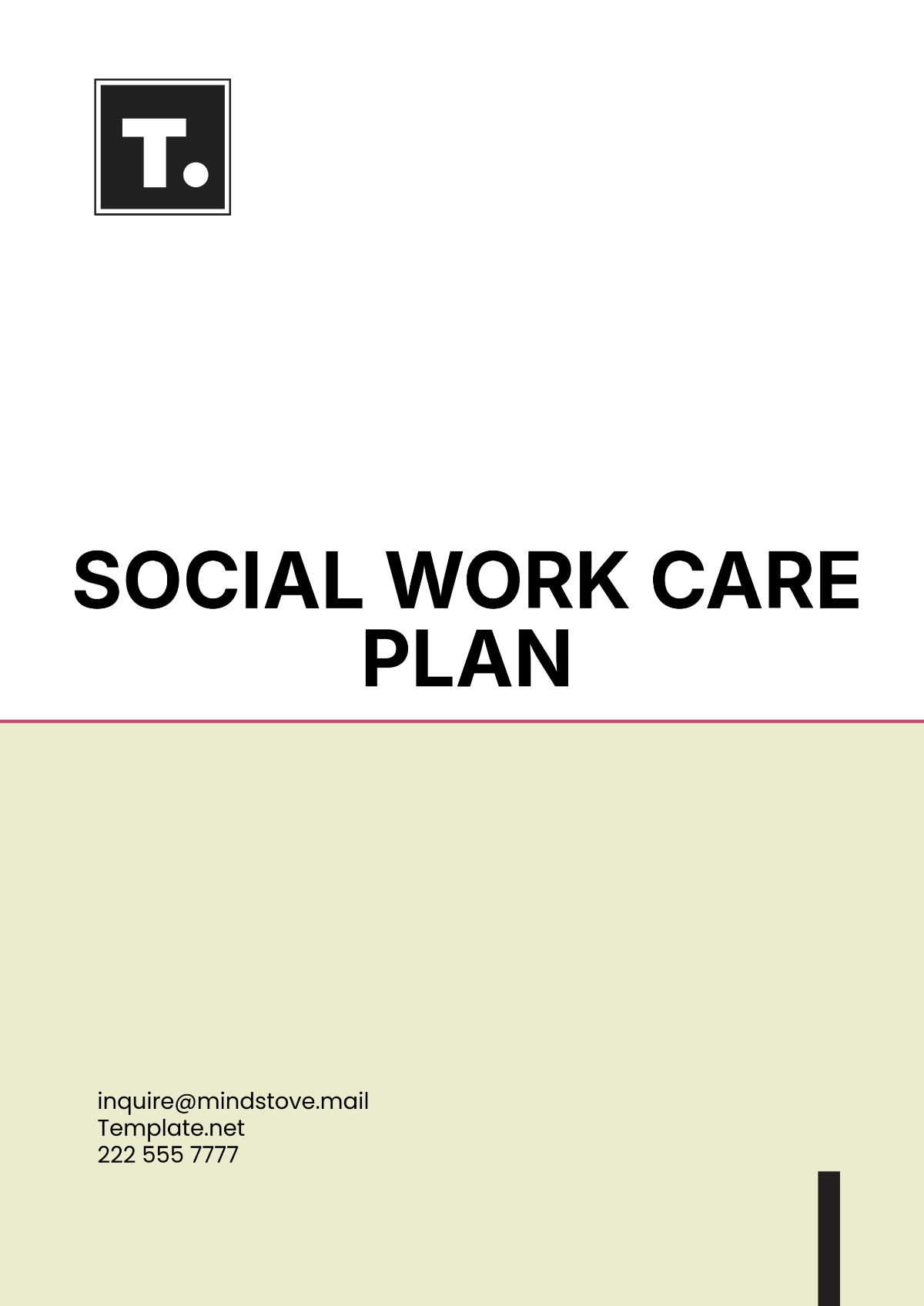
Prepared by: | [YOUR NAME] |
Company: | [YOUR COMPANY NAME] |
Department: | [YOUR DEPARTMENT] |
Date: | [DATE] |
I. Introduction
A Social Work Care Plan is essential for social workers to provide personalized care efficiently. It organizes needs, goals, interventions, and progress tracking, promoting collaboration among stakeholders. By assessing strengths and planning strategically, social workers enhance well-being and teamwork, improving clients' quality of life and support networks.
II. Client Information
Client Name: | Jean Harris |
Case Number: | 12345 |
Date of Birth: | March 15, 2050 |
Address: | Columbus, OH 43215 |
Contact Information: | 222 555 7777 |
III. Assessment
A. Background Information
Family Dynamics: Jean Harris is from a close-knit family with supportive parents, two siblings, and nearby extended relatives. They share responsibilities and enjoy frequent family gatherings.
Medical History: Jean Harris effectively manages their asthma condition through the consistent use of prescribed medication and by attending regular medical check-ups. This management strategy enables them to carry out their daily activities without experiencing significant disruptions or impacts due to asthma.
Psychosocial History: Raised in a suburban area, Jean Harris completed high school and vocational culinary training. They work part-time at a local restaurant, live nearby, engage in community cooking classes, and volunteer at a food bank.
B. Current Needs and Concerns
Primary Concern: Jean Harris's main challenge is managing work-related stress while maintaining a balance between personal, social, and professional commitments.
Strengths and Resources: Jean Harris possesses strong culinary skills, effective communication abilities, a positive learning attitude, and benefits from a supportive family, healthcare access, and community involvement.
IV. Goals
A. Short-Term Goals
Goal 1: Develop Stress Management Skills
Interventions: Provide stress management workshops, mindfulness exercises, and time management strategies. Encourage regular breaks during work hours.
Timeline: Target completion within 2 months.
Goal 2: Improve Work-Life Balance
Interventions: Collaborate with the employer for flexible scheduling options. Set boundaries for personal time and engage in relaxing hobbies.
Timeline: Target completion within 3 months.
B. Long-Term Goals
Goal 1: Enhance Career Growth in Culinary Arts
Interventions: Explore advanced culinary courses or certifications. Seek mentorship opportunities with experienced chefs.
Timeline: Achieve intermediate culinary certification within 1 year.
Goal 2: Strengthen Social Support Network
Interventions: Attend regular social events or support groups. Maintain connections with friends and family members.
Timeline: Build and maintain a strong social support network continuously.
V. Interventions
A. Counseling and Support Services
Individual Counseling: Schedule bi-weekly counseling sessions with a licensed therapist to address work-related stressors, anxiety management techniques, and personal goal setting.
Family Therapy: Arrange monthly family therapy sessions focusing on effective communication strategies, conflict resolution skills, and mutual support within the family unit.
Support Groups: Connect Jean Harris with a local stress management support group and a culinary professionals' network for peer support and industry insights.
B. Skill Building and Education
Life Skills Training: Enroll Jean Harris in a series of workshops covering budgeting, time management, and stress reduction techniques tailored for working individuals.
Parenting Classes: Offer online parenting classes covering effective parenting strategies, stress management for parents, and maintaining a healthy work-life balance as a caregiver.
Psychoeducation: Conduct educational sessions for Jean Harris and family members about stress management techniques, asthma management tips, and resources for mental health support within the community.
VI. Progress Tracking
A. Outcome Measures
Mental Health Assessment: Administer the PHQ-9 questionnaire bi-weekly to assess changes in mood and depressive symptoms. Use the GAD-7 scale to monitor anxiety levels and track improvements over time.
Goal Attainment Scaling: Implement a goal attainment scaling framework with [Client Name] to monitor progress towards short-term and long-term goals. Review and adjust goals as needed during monthly check-ins.
B. Documentation and Reporting
Session Notes: Maintain detailed session notes after each counseling or therapy session, documenting interventions used, client responses, challenges faced, and insights gained. Note progress towards specific goals and any barriers encountered.
Progress Reports: Provide quarterly updates to stakeholders, including Jean Harris, family, and healthcare professionals, highlighting goal achievements, mental health changes, and care plan adjustments based on progress and feedback. Seek collaborative input for responsive care.
- 100% Customizable, free editor
- Access 1 Million+ Templates, photo’s & graphics
- Download or share as a template
- Click and replace photos, graphics, text, backgrounds
- Resize, crop, AI write & more
- Access advanced editor
Maximize care strategies with our Social Work Care Plan Template from Template.net. This editable and customizable resource bolsters comprehensive care plans for social work settings. Effortlessly tailor interventions, goals, and assessments with our user-friendly Ai Editor Tool. Create personalized care plans that prioritize client well-being and support holistic care approaches. Streamline workflows
You may also like
- Finance Plan
- Construction Plan
- Sales Plan
- Development Plan
- Career Plan
- Budget Plan
- HR Plan
- Education Plan
- Transition Plan
- Work Plan
- Training Plan
- Communication Plan
- Operation Plan
- Health And Safety Plan
- Strategy Plan
- Professional Development Plan
- Advertising Plan
- Risk Management Plan
- Restaurant Plan
- School Plan
- Nursing Home Patient Care Plan
- Nursing Care Plan
- Plan Event
- Startup Plan
- Social Media Plan
- Staffing Plan
- Annual Plan
- Content Plan
- Payment Plan
- Implementation Plan
- Hotel Plan
- Workout Plan
- Accounting Plan
- Campaign Plan
- Essay Plan
- 30 60 90 Day Plan
- Research Plan
- Recruitment Plan
- 90 Day Plan
- Quarterly Plan
- Emergency Plan
- 5 Year Plan
- Gym Plan
- Personal Plan
- IT and Software Plan
- Treatment Plan
- Real Estate Plan
- Law Firm Plan
- Healthcare Plan
- Improvement Plan
- Media Plan
- 5 Year Business Plan
- Learning Plan
- Marketing Campaign Plan
- Travel Agency Plan
- Cleaning Services Plan
- Interior Design Plan
- Performance Plan
- PR Plan
- Birth Plan
- Life Plan
- SEO Plan
- Disaster Recovery Plan
- Continuity Plan
- Launch Plan
- Legal Plan
- Behavior Plan
- Performance Improvement Plan
- Salon Plan
- Security Plan
- Security Management Plan
- Employee Development Plan
- Quality Plan
- Service Improvement Plan
- Growth Plan
- Incident Response Plan
- Basketball Plan
- Emergency Action Plan
- Product Launch Plan
- Spa Plan
- Employee Training Plan
- Data Analysis Plan
- Employee Action Plan
- Territory Plan
- Audit Plan
- Classroom Plan
- Activity Plan
- Parenting Plan
- Care Plan
- Project Execution Plan
- Exercise Plan
- Internship Plan
- Software Development Plan
- Continuous Improvement Plan
- Leave Plan
- 90 Day Sales Plan
- Advertising Agency Plan
- Employee Transition Plan
- Smart Action Plan
- Workplace Safety Plan
- Behavior Change Plan
- Contingency Plan
- Continuity of Operations Plan
- Health Plan
- Quality Control Plan
- Self Plan
- Sports Development Plan
- Change Management Plan
- Ecommerce Plan
- Personal Financial Plan
- Process Improvement Plan
- 30-60-90 Day Sales Plan
- Crisis Management Plan
- Engagement Plan
- Execution Plan
- Pandemic Plan
- Quality Assurance Plan
- Service Continuity Plan
- Agile Project Plan
- Fundraising Plan
- Job Transition Plan
- Asset Maintenance Plan
- Maintenance Plan
- Software Test Plan
- Staff Training and Development Plan
- 3 Year Plan
- Brand Activation Plan
- Release Plan
- Resource Plan
- Risk Mitigation Plan
- Teacher Plan
- 30 60 90 Day Plan for New Manager
- Food Safety Plan
- Food Truck Plan
- Hiring Plan
- Quality Management Plan
- Wellness Plan
- Behavior Intervention Plan
- Bonus Plan
- Investment Plan
- Maternity Leave Plan
- Pandemic Response Plan
- Succession Planning
- Coaching Plan
- Configuration Management Plan
- Remote Work Plan
- Self Care Plan
- Teaching Plan
- 100-Day Plan
- HACCP Plan
- Student Plan
- Sustainability Plan
- 30 60 90 Day Plan for Interview
- Access Plan
- Site Specific Safety Plan

